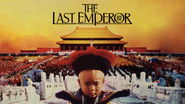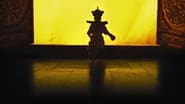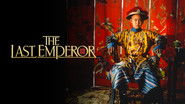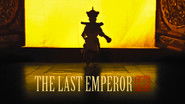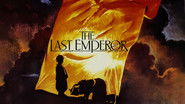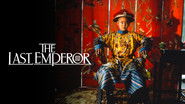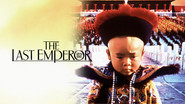851222
Greetings from Lithuania."The Last Emperor" (1987) extended version which runs for 3 h 34 min is a truly great bold cinema. It's an epic biopic in every meaning of this word, and yet is not a traditional epic because there isn't very much action in this movie, and person described in this movie wasn't the one who could look really great in epic picture.This is a slow movie, and it's running time 3 h 34 min can be unforgiven for those who want to see this movie - take your time to watch this picture, because you may not view it in one time.Production values of "The Last Emperor" are magnificent. Famously shoot at locations it features one of the very best production of epic movies i have ever saw. The costumes, music, cinematography, direction - it's all was Oscar worthy - no wonder this movie took 9 Oscars - it's a fabulous creation.Overall, i won't lie - "The Last Emperor" is a true movie art and not an entertainment for mainstream audiences. It's a very long picture, and 3 h 34 min doesn't fly fast - this movie takes it's time to show us this story and pacing of this movie is not rushed, for some it might be unbearable to watch this till the end in one viewing. Nevertheless, this is a great movie.
tieman64
"A successful parasite is one that is not recognised by its host, one that can make its host work for it without appearing as a burden. Such is the ruling class in a capitalist society." - J. Read.The 1800s. China is ruled by various emperors and warlords. Exerting their will upon these rulers are the Great Powers (France, Germany, Italy, Japan, Russia, Austria-Hungary, the United Kingdom and the United States), who accord themselves special privileges, immunities and extraterritorial rights. They carve China up between themselves.Tired of imperialistic powers exploiting their country, countless rebellions spring up. Some target foreigners, others challenge the Emperors, who are Manchurian and so perceived as invaders. Soon, Chinese nationalism is on the rise. This leads to The Boxer Rebellion (1899), in which proto-nationalists dare to take on imperialists. The Great Powers respond by sending in their fleets and troops. The rebellion is crushed.The next major upheaval occurs in 1911, with the Xinhai Revolution. Here China's last Imperial dynasty - the Qing dynasty - is kicked out, and the Republic of China established. Far from a homogeneous class movement, this Revolution is propelled by various disparate groups. In many regions it is spearheaded by the landed gentry, stockholders and the upper middle classes, who oppose the ways in which their assets are being sold to foreign banks (mega banks in Britain, Germany, France, Denmark, even the nefarious J.P. Morgan) by the Emperor in an effort to pay off China's escalating debts. The Revolution ends in 1912 with the abdication of Aisin-Gioro Puyi, China's six-year old "Last Emperor". In an instant, 2000 years of Imperial rule comes to an end. The Kuomintang (the KMT or Nationalist Party) henceforth assumes control of China, though many regions remain under the rule of regional warlords. The Kuomintang spends the next decade wrestling control away from these warlords.Today, most historians steer clear of the word "feudalism". Social scientists likewise deem "feudalism" a vague or meaningless term. Socio-economic relations under dynastic rule were more complex than is typically thought, they argue, and there is very little that firmly distinguishes contemporary capitalism from the reality of "actual feudal life".Such a lack of meaningful distinction is something which the Chinese swiftly come to realise. Royals had been kicked out, but elites, often with ties to the very same foreign powers who brokered deals with the emperors, still skewed things in their favour. And so China swiftly descends into Civil War, forces loyal to the Kuomintang-led government on one hand - supported by hundreds of thousands of troops from America, England and other European powers - and forces loyal to the Communist Party of China on the other. The war began in 1927 and paused briefly whilst both parties put aside their differences to counter the Japanese invasion of China. The Civil War resumed in 1946, after hostilities with Japan had ended. The Civil War then ended in 1950 with the communists victorious and the leadership of the Kuomintang fleeing to Taiwan, where today they still claim to be the legitimate government of China.In 1949, communist leader Mao Zedong ushered in a new China – the People's Republic of China – with its capital in Beijing. Chaos, disorganisation and confusion followed. Millions would die of starvation and due to the ensuing lawlessness. Slowly, however, the communists began to pull things together. Hundreds of millions of peasants were given land, women's rights were advanced, living standards rose, foreign powers were booted, literacy rates skyrocketed, health-care and education were extended to the working masses, and ordinary people were involved for the first time in the political process, and even encouraged (in theory) to continually challenge the revolutionary government. Over time, the more radical tenets of communism would be reversed by market reformists within the communist party, eventually giving rise to modern China; a state-capitalist juggernaut.Bernardo Bertolucci directed "The Last Emperor" in 1987. A lavish biopic, the film watches as Emperor Puyi, a young child, cute and innocent, loses all official powers and is barricaded in The Forbidden City. Here Puyi lives a privileged but isolated existence, banned by the Kuomintang from ever leaving his expansive palace. He receives private tuition, is married and dreams of reclaiming his throne.Overlong and hampered by its fidelity to history, "Emperor" is nevertheless a lush, spectacular and oft interesting film. It was inspired by the epics of Luchino Visconti, a Marxist whose films were preoccupied with the effects of revolutions on the upper classes. Bertolucci is himself a Marxist. But where Visconti observed as dynasties fade and wither after various social "reconfigurations", Bertolucci does the opposite, his emperors desperately clinging to power.The Latin root of "radical" is "to strike at the root" or to "target the source". As such, Bertolucci portrays Puyi as a kind of weed or seed that keeps re-germinating once conditions are right. This ideological contaminant, or parasite, may go into hibernation, may appear to be safely quarantined, it may even appear to be extinct, harmless, cute or benign. But as Bertolucci shows, it craves power and always tries to re-establish itself. Puyi cannot help but infect, infest and grow.And so "Emperor's" second half watches as Puyi becomes an adult. He becomes increasingly possessive, treats even free men as his underlings, and eventually forges alliances with the rulers of Japan, who support his puppet reign in Manchuko. The film ends with Puyi removing a cricket from his throne. It's an implausible scene – the cricket is decades old, having been given to Puyi during his coronation – but symbolically apt. Associated with growth and harvesting in Chinese mythology, the cricket speaks to the survival of Puyi's brand of power. Like a resilient Hydra, heads may roll, but the beast lives on. Fittingly the cricket is passed to a devout Red Guard, suggesting where exactly China's parasites now reside.8/10 – See "The Damned" (1969).











